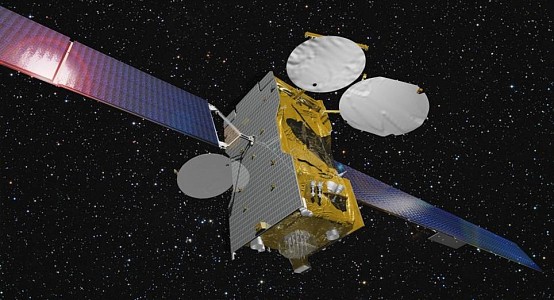China plans to launch 10 satellites from 2019 to 2021

Almaty. December 21. Silkroadnews - China plans to launch 10 satellites from 2019 to 2021, “People’s Daily” reports.
“China Aerospace Science and Industry Corp, the nation’s largest missile maker, will use its Kuaizhou solid-propellant rockets to launch Hainan province’s first satellites in 2019,” the report reads.
Zhang Di, chairman of Expace Technology, a subsidiary of CASIC, which provides commercial launch services, said his company will launch several Kuaizhou 1A and Kuaizhou 11 carrier rockets over three years starting in 2019. They will put 10 satellites into orbit for the Hainan Earth Observation Sattellite Constellation, the first space station developed in the southern province of China.
According to Zhang, in 2019, Kuaizhou rockets will lift three Hainan 1 optical satellites. The next year, three Hainan 1 satellites and two Sanya 1multi-spectral remote sensing satellites will be launched. Also two Sansha 1 radar satellites are planned to be put into orbit in 2021.
“If the satellite weighs about 200 to 300 kilograms, we will use the Kuaizhou 1A, and if it has a weight of around 1 metric tonne then we will use the Kuaizhou 11,” he said.
The Kuaizhou 1A was first launched in January. It has a lift-off weight of 30 tonnes and is capable of sending 200 kg of payload to a sun-synchronous orbit, or 300 kg of the payload to a low-Earth orbit.
Kuaizhou 11 is still being tested and will make its first flight in 2018, bringing six satellites into orbit. According to the CASIC, it will have a lift-off weight of 78 tonnes and will be able to place a payload weighing 1 tonne to a sun-synchronous orbit at an altitude of 700 km or a payload weighing 1.5 tonnes into a low-Earth orbit.
Yang Tianliang, the chief designer of satellites, said, Hainan administers hundreds of islands and reefs in the South China Sea, so it urgently needs the help of space platforms to monitor these areas and surrounding waters.
Use of 10 satellites will be capable of fully monitoring the South China Sea in real time, helping the country better protect its sovereignty, develop the region and deal with contingencies, he said.
According to Xu Guanhua, the former minister of science and technology, the satellite system will also be useful for marine industries, marine research and protection of the ocean environment.


